|
|

|
Walter Daniels is an Austin-based harmonica player and saxophonist. Equally influenced by punk rock and blues, Walter's unique sensibilities have gained him access to varied musical projects and scenes.
Walter was born in Chicago, and with his family moved across the country frequently as a child. He eventually made it to Austin, Texas, in the early Eighties. While a fervent fan of music, it took him some time to connect with musicians. He also struggled to learn the harmonica � an unorthodox instrument for someone reared on punk rock. Eventually, Walter connected with the Hickoids in the late Eighties, contributing to their LP, 'Waltz a Crossdress Texas' (1989). Throughout the early and mid Nineties, Walter played in likely his best known project, Jack o' Fire, with Tim Kerr. He also fronted the underrated Big Foot Chester, and contributed to records by '68 Comeback and the Oblivians.
Lately, Walter has been working with John Schooley; the two released a record on 12XU last year, 'Dead Mall Blues'. Another project with Schooley, Meet Your Death, will likely have an album out early next year. With Buxf Parrot (ex-Dicks), Daniels has just formed a new band, The Illustrious Potentates. Ghost Highway has another Walter Daniels and the Giblets 45 on the way.
TB: Although you've lived in Texas for decades, you're originally from Chicago, right?
Walter: I was born in Chicago Heights (in 1963). My family moved to Homewood, Illinois, later on. My dad worked for Walgreens. Walgreens played a big role in terms of where we lived. In 1972 I moved to Shreveport, Louisiana. After that, my family moved to Davenport, Iowa. I lived in the Quad Cities area. In 1978 my dad was transferred by Walgreens to Woodlands, Texas, which is just outside of Houston. When I lived in Illinois I did get a harmonica when I was younger. However, I didn't do much with it. It wasn't until I was in high school in Texas where I really started getting interested in playing. I moved to Texas my sophomore year of high school.
TB: Did Paul Butterfield get you into harp playing?
Walter: Oh, yeah. There were a couple of things that really got me into the harmonica. I saw an episode of The Midnight Special, and although I'm still not exactly certain of who performed on it, I'm pretty sure it was Paul Butterfield and John Mayall. I remember talking with my friends about the performance. While I was living in Homewood, Illinois, I saw a documentary on the blues which featured Johnny Woods, a harmonica player who played with R.L. Burnside. After seeing Johnny Woods play, I thought, "Wow! I really want to make that sound." My harmonica was just laying in a drawer, where it had been for years. I started getting serious about learning how to play around then. I do really like Paul Butterfield. He was a great player and he put together some amazing bands.
TB: The first Paul Butterfield Blues Band LP was a significant record, not only for its influence on musicians, but as a transitional record for Elektra as they started branching out from folk to rock.
Walter: Yeah. They were also influential in getting Bob Dylan to crossover to electric.
|
|
|
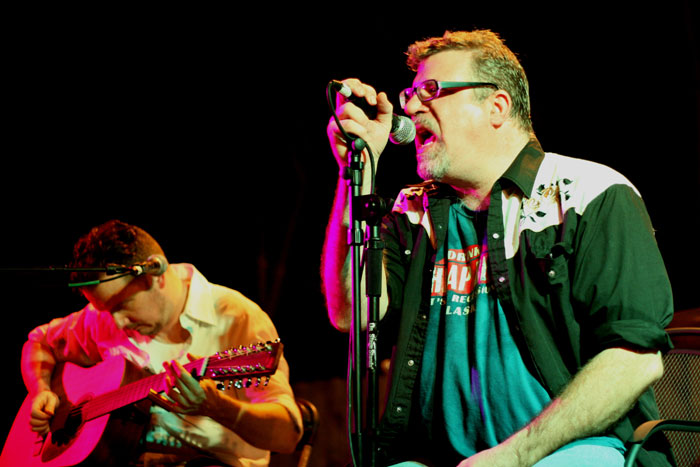
|
TB: If you throw a rock, you're bound to hit a guitar player. That's not the case with the harmonica. How did you go about learning how to play?
Walter: When I started, it might as well have been the dark ages for the harmonica. Literally, I just bought records that had harmonica playing on them and I'd try to duplicate what I was hearing. My aunt bought me a pretty good book by a guy named Tony "Little Son" Glover. I think it's still in print and it's a really good introduction to harmonica playing.
A lot of people don't really know the harmonica. A friend of mine that I'm playing with now plays harmonica. He didn't know that there's a break-in period with the instrument. When you get a new harmonica, you play on it gently for days�weeks if possible�before you start really bending the notes and getting into it. If you play it hard when it's still brand new, it won't last very long. That was stuff I picked up on along the way. Learning was a real challenge. When I turned eighteen, I could go to clubs. I did go and see the Fabulous Thunderbirds, so I saw Kim Wilson in person � a great harmonica player. Outside of a few people and books, I really had no earthly idea about what I was doing at all. I didn't know how to play with other people. It was only after getting involved in the club scene here in Austin that I started piecing it together. I worked at this club called the Beach Cabaret. I'd do whatever at the club: work in the kitchen, bartend or janitorial work. It gave me an opportunity to watch bands and sit in with them. Some of the players I played with then I'm still working with now. It was a really good learning experience for me.
TB: I know you also play saxophone. When you went to UT (University of Texas at Austin) were you a music major?
Walter: No, I was an English major. What was ironic was that I wanted to play the saxophone, but they were really expensive. A big appeal of the harmonica to me was how cheap it was; it was the closest I could get to the sound of a saxophone without spending all the money on one. I lived at UT at the Jester dorm. It was a huge building with its own zip code. Oddly enough, my roommate was a classical saxophone player, Paul Wehage. He was incredibly good. I'd play him Hound Dog Taylor and he'd put his pillow over his ears and say, "That's brutal!" I'd play Professor Longhair and he'd say, "That piano is out of tune." I really liked those records. I did take some music lessons during the summer. Harvey Pittel, who's the head of the music department at UT, I took a class with him. Poor guy. He had to listen to me play chromatic scales. I'm sure it was really awful. But I love playing the saxophone. I'm still terrible, unfortunately. Even after playing for a long while, I still say to myself, "Man, I'm really bad." I'm definitely a punk saxophone player.
TB: You mentioned moving to Texas in '78 which was when the Raul's scene was happening in Austin. Did you get to see any of those first-wave punk bands?
Walter: I came to UT in either '81 or '82. I did get to see some of the early punk bands. I didn't get to go to Raul's. I did go to Studio 29 which is where (bakery and cafe) Texas French Bread is now (in Central Austin). It was fun. All the soundmen were hippies and all the musicians were punks. I did see the Big Boys once. I didn't get to see the Dicks. I got my job at the Beach (Cabaret) because everyone was going to Woodshock. Woodshock was this big outdoor festival that lasted for a couple of days. Beach Cabaret needed somebody to work the kitchen. I wanted to go to Woodshock but I thought, "I should go for the job." It was at Beach Cabaret where I met more of the punk rockers and garage rockers around Austin.
TB: You did an interview with (John) Schooley were you discussed working at Sound Exchange. I imagine you met a lot of people working there.
Walter: Definitely. I saw Poison 13 at the Beach and I remember buying their record at Sound Exchange afterwards. It was five dollars. They were one of my favorite bands. I bought my first Beasts of Bourbon record there too. When I worked at Sound Exchange in the '90s it was great. Singles were still going strong. It was a meeting place. Sort of what Trailer Space is now but with a lot less drinking. We didn't have a refrigerator filled with beer.
TB: Trailer Space is my favorite Austin record store. It's also a time vortex.
Walter: Yeah. Sound Exchange was a lot of fun. I'd freak people out there by playing old country records. I could pick up any country LP I wanted. No one cared about that section.
TB: As a harmonica player interested in punk rock, it had to have been difficult to find people to play with. Although you did find the Hickoids later on, it's not like the Huns were looking for a harp player.
Walter: As a harmonica player, you've got to make things happen for yourself. Occasionally I wonder what it would have been like had I selected a more conventional instrument. However, the cool thing about playing this off-beat instrument is that it's allowed me to work with a large variety of people. It blows my mind sometimes. I'll be in a studio playing a session with people I've looked up to and think to myself, "This is insane. I can't believe I'm here." It's been really good. By not having a straight-ahead blues group the punk people know I'm sort of one of them. I work well with people like Jeffrey Evans�musicians interested in twisted roots music. That's where our hearts are at.
|
|
|
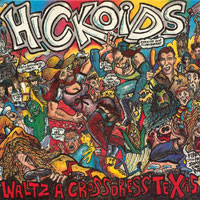
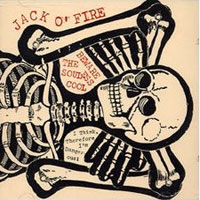
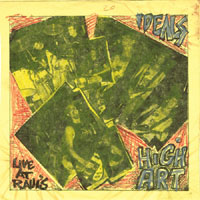
|
TB: The Hickoids are the first group I know you recorded with.
Walter: Davy Jones and the late Dick Hays were in The Hickoids. They were also in a band called The Ideals. The Ideals played whatever they wanted to: "Secret Agent Man," blues covers and punk-rock stuff. The Ideals had been around for a while. They played that night the Dicks and the Big Boys recorded that live record ('Live at Raul's', 1980). The Ideals were on that bill. I was playing with The Ideals and then I'd sit in sometimes with The Hickoids. It was a lot of fun. I recorded that one record with them � 'Waltz a Crossdress Texas' (1989). That's the first time I recorded harmonica feedback. I remember these kids asked me once, "What in the hell did you do to get that sound?" Spot (of SST Records fame) engineered that album. Working with him was really exciting. I loved the Hickoids. The Hickoids and Poison 13 were my favorite groups at the time. I wanted to join both of those bands. It didn't quite work out that way (laughs). But I did sit-in with them on occasion.
TB: Wasn't Jack o' Fire supposed to be a one-off band?
Walter: That's right. I did a thing at the Continental Club on Howlin' Wolf's birthday. I played with a bunch of The Ideals. We played electric. We did an early set with Tim Kerr and Josh La Rue. Josh is one of the co-owners of Breakaway Records. We did that show at the Continental. We might have done one other show; I think we were billed as Blind Jack o' Fire. Tim said, "Let's play again. We'll get little amps. We won't be super loud." We ended up adding Dean (Gunderson) from Cat Butt on standup bass. Josh lived in Washington DC and was in a group there. When he was in Austin we'd get together. Often around the holidays he'd visit his mom and we'd get together then�play a couple of shows and do a recording session.
TB: Jack o' Fire appeared to have its mission statement formed right from the get-go: art-damaged roots covers that spanned the musical gamut.
Walter: Tim pretty much set the parameters. At one point we talked about writing a tune. I was really green at that time. I had only been in one other group before Jack o' Fire�the Bloodsucking Go-Devils. Tim had seen us play and had said some kind things about us. That was nice of him because it likely helped with shows. We'd all contribute to Jack o' Fire but again Tim really set the parameters for the band.
TB: You mentioned Jeffrey Evans earlier. When did you meet Jeff?
Walter: I first saw Jeffrey play at Emo's. I was working at Sound Exchange and doing Jack o' Fire then. Jack o' Fire and '68 Comeback were releasing records on a lot of the same labels. I became a big Jeff Evans fan. I started picking up all of his records. George Reyes, who ended up playing in '68 Comeback later on, introduced me to the Gibson Bros.; he was playing their records at a party. I proposed an idea to my friend Christian Caperton, who also worked at Sound Exchange, about recording in Memphis. Christian had released some Jack o' Fire records on his label Undone. I had seen the Oblivians a couple of times. I played with them in Chicago and Bellingham. Christian gave me the airfare to get to Memphis and said, "Let me hear what you come up with. If I like it, I'll release it." I met Jeffrey on that trip. Initially, I thought Jeffrey was going to be the producer. I didn't know he was going to play on the record with us (Walter and the Oblivians). We recorded on a 4-track in a garage with no air conditioning.
TB: So the session for 'Melissa's Garage' was the first time you met Jeffrey?
Walter: Yeah. Jeff and I hit it off. I had a lot of fun talking and playing with him. Jeffrey's a great guy and a great storyteller.
|
|
|

|
TB:: Jeffrey has that amazing line he uses occasionally when opening a show � "Just priming the pump for the big entertainers."
Walter: There you go. Or take that song "Cadillac Man."* That has inspired me to record a recitation. I haven't done it yet, but I will. I'm very envious of his recitations.
(*A couple of years ago, Eric Friedl told me how Jeffrey Evans and Jack Taylor were able to achieve such a deep echoing effect on the '68 Comeback single, "Cadillac Man." The secret: a karaoke machine. I asked Eric to retell me the story and he kindly obliged.
Eric Friedl: The karaoke machine was on the street across from where Greg (Cartwright) was living. Jeff (Evans) lived at the end of the block. We saw it as a broken karaoke machine, but Jeff had the genius to grab it and utilize its ridiculously deep echo. We used it for the Oblivians, Walter Daniels and Jeff Evans sessions, but it never sounded as great as it did on "Cadillac Man.")
TB: "Cadillac Man" gains a lot of its strength through Jack Taylor's guitar playing. Do you have any Jack Taylor stories?
Walter: Oh yeah. I was working at Sound Exchange and Darin Lin Wood shows up. He's looking at some records up on the wall that he's played on. And they're selling for high dollar.
TB: Red Devils or something?
Walter: Something like that. Now bear in mind, this is still the pre-internet and cell phone era. So I'm at the counter and the phone rings. It's Jack Taylor on the line. He says to me, "Man, I can't find my band. I need help. Can you help me find them?" I said to Darin, "Hey, your band mate called. He needs help." It was hilarious�Darin was completely dismissive and was like "fuck him." You'd think he'd be concerned but Darin couldn't have cared less. I thought, "Man, these guys are freaks."
My friend Kathy Cowgirl told me a good Jack Taylor story. She lives in Houston; her ex-boyfriend used to book the Houston Emo's. 68 Comeback had just finished playing Houston's Emo's. They were getting ready to leave and Jack told them, "Hey, I'm going to ride in the trailer with all of the equipment." He had taken some psychedelics and was just going to ride in the dark in the band's trailer. Kathy, who would meet all of these road bands, said to Jack, "You're the weirdest person I've ever met." Jeffrey is such a level-headed guy. He had the craziest collaborators.
TB: You were releasing a lot of records on Sympathy, both as a guest musician with 68 Comeback and with Big Foot Chester. You had developed a pretty good rapport with Long Gone John, huh?
Walter: Yeah. I met John at Garage Shock. He had seen Jack o' Fire and really liked the band. John's a great guy. I got to accomplish a lot of stuff because of John. Jack o' Fire had ended and I had some ideas on what I wanted to do. I got Bill (Anderson) from Poison 13 and Davy (Jones) from the Hickoids. Big Foot Chester had a great rhythm section�Robbie Becklund and Stefanie Paige Friedman who were both in the Lord High Fixers. We recorded some stuff and I sent it to John. He said, "Hey, man, let's do a full-length." That was amazing. I didn't expect that reaction.
'A Bridge Too Fuckin' Far' was recorded in my old garage on Hank Avenue in South Austin. Jack o' Fire used to practice there. I had moved out of the house but my friend Mike Vernon � who's a really good surf guitaris t� was living there. We asked him, "Hey, can we record this record in your garage?" We were surrounded by all this vinyl. Jim Yanaway � who ran Amazing records and put out Legendary Stardust Cowboy LPs � they were all his jazz records. It was an amazing collection. He'd have like fifteen Yusef Lateef records. It was really fun recording that record. It was a pretty crazy time period. Playing with that lineup of '68 Comeback was great.
|
|
|
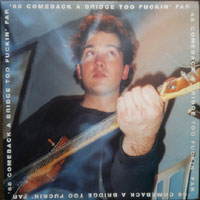
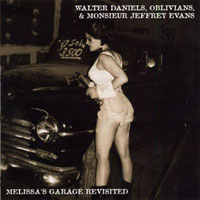
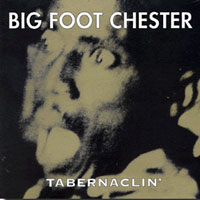
|
TB: Were the sessions for 'A Bridge Too Fuckin' Far' really impromptu? It's a great record. However, the fidelity is pretty low even for '68 Comeback standards.
Walter: Jeffrey was writing new songs and staying at my house. It's the house I have now in Mueller. Of course, the Mueller development didn't exist back then. Jeff had a ton of ideas during that period. I liked recording with (drummer) Jeff Bouck a lot. He lives out here in Austin. What an amazing drummer.
The fidelity is low. Jeffrey got an advance and recorded it himself. That makes sense. But there's a part of me that says, "Damn, I wish we had recorded it in a studio." But whatever. It's done. It's funny. People around here, like Orville Neeley and Graham Low, really like '68 Comeback a lot. I tried to buy a Porter Wagoner record off of Graham at Trailer Space. He wouldn't take my money. He said, "Just bring in more '68 Comeback records."
TB: Those Big Foot Chester records are really good. Although he has his detractors, Long Gone John really came through by putting those out. Were you guys able to leave Austin much?
Walter: No. That was the tough thing. I wish we had been able to tour. That lineup we had for the first CD (Walter Daniels, Stefanie Paige Friedman, Davy Jones, Bill Anderson, Angele Cleopatra Stavron) was so good. Last summer we played at the Hole in the Wall. Stefanie and Angele played with me. We only played San Antonio (outside of Austin). I really enjoyed being in that band.
You're right about Long Gone John. I was playing with Texacala Jones and Gene Taylor, the piano player, was her roommate. I asked John, "Hey, is there any way I can get Gene Taylor to play on some of these Big Foot Chester songs?" John made it happen. Gene played on three songs. Gene is a world class boogie-woogie player. John was amazing. I produced the Crack Pipes and John looked out for me. Schooley and I will talk about missing those Sympathy days. I mean, you had to make it happen � you had to publicize and find a way to tour when you were on Sympathy. He had a ton of bands on that label. Somebody in Italy pressed vinyl of the Big Foot Chester records. They didn't come out on vinyl originally. But hats off to Long Gone John.
TB: You've played with the legendary Texacala Jones a bunch.
Walter: Oh yeah! Tex and the Horseheads played at the Beach when I worked there. They were playing at The Ritz the next night and came into town a night early. They talked their way onto a bill. We broke the rules all the time at the Beach. Although we were pretty wild at the Beach, a night with the Horseheads was even wilder. Their bass player, Smog, passed out before their set. He joined them onstage about halfway through their set when he came to.
Texacala is a great singer and she works hard at her craft. She has a group called Hey! I've been lucky to get her to sing with me on a bunch of different things�like Big Foot Chester. We'd get her to sing "Lock Me Up" and an up-tempo version of "Railroad Bill" with us. Texacala has a great sense of humor and she's an amazing person. I was reading something Mike Martt wrote today. He said, "Jeffrey (Lee Pierce) liked girls who looked like Tex."
|
|
|
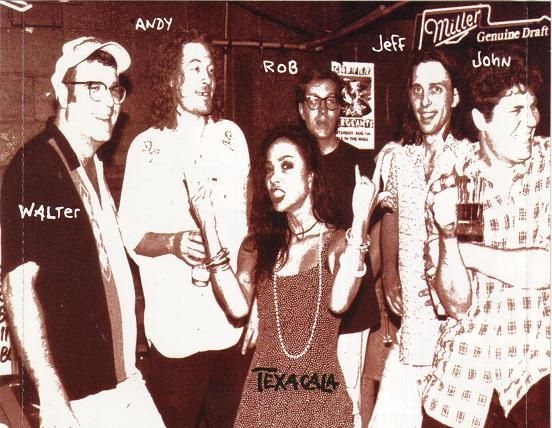
|
TB: I think the personal and working relationship Jeffrey Lee Pierce formed with Romi Mori was what Jeffrey was looking for with Texacala. Of course, it didn't work out with Texacala.
Walter: Yeah.
TB: Tex and the Horseheads gets shortchanged. 'Life's So Cool' is a great record. Their reputation sort of overshadows their work. That band was lined with good players.
Walter: Definitely. They were a powerful band. They were chaotic back then. This was back in '84 and '85. I saw Smog with Dave Alvin a while ago. It was a great show.
TB: Didn't you play with James Williamson?
Walter: That's still one of those "pinch me�I-can't-believe-this-is-happening moments." James Williamson invited me to play on his 'Re-Licked' (2014) record. It was a real stunner. I played with this Spanish blues band, Guadalupe Plata. They had decided to donate the money people paid to download their music to the memory of Esme Barrera, who was murdered. The money was dedicated in Esme's name to Girls Rock Camp. I posted about it on Facebook. It was a really good thing and it was all Guadalupe Plata's idea. James Williamson saw it on Facebook and said, "That sounds really good." Eventually he started talking with me about different singers in Austin. Then he said, "By the way, you'd be really good on this project too." The one thing he asked of me was not to talk about the project with anybody. That was hard to do. I was talking with my buddies at the bar and 'New Values' came on. It was almost like being Superman�"I really want to let loose with this!" I think I told Schooley and that was about it. James Williamson is such a nice guy. I got to play with him live a couple of times. It was really cool.
|
|
|

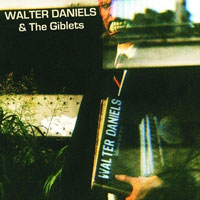
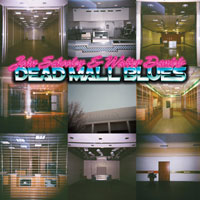
|
TB: I know you played on some Revelators tracks. But when did you and Schooley get your duo going?
Walter: That really came out of the blue. Schooley called me up and said he wanted to record some stuff. The studio time was a birthday gift to himself. Initially, he had no higher hopes than a digital download. We recorded over two days. We both love country blues. Getting older, playing "not loud" starts to get more appealing. There's almost no gear for me to drag along.
Big Foot Chester and The Revelators did shows back in the day. The Revelators were awesome. We did a single together for Sympathy. When Schooley had the Hard Feelings going, I would show up and play with them. The Hard Feelings opened up for Guitar Wolf and the White Stripes. I enjoyed the Hard Feelings. John's a great picker and a hard worker.
I'm surprised that Gerard (Cosloy) at 12XU put out 'Dead Mall Blues'. It was really cool.
TB: That goes back to what you were saying about Sympathy earlier. A lot of great records should come out but they don't because labels don't want to take the risk. And I get that. Nevertheless, 12XU has helped fill that void.
Walter: With Long Gone John, his label could go in all different directions. Gerard is also brave. He knows that we're not going to go out for a solid month on tour.
TB: We've got that single coming out (on Spacecase Records). And I got an update from Federico Zanutto mentioning a new John Schooley and Walter Daniels single.
Walter: Yeah, Schooley and I have a loud band called Meet Your Death. We're following in the vein of Tim Kerr � it's a group you're not going to see live often. We started out sort of rootsy. We ditched that for a more Beasts of Bourbon-influenced sound. We did a session with Mike Mariconda who's helping us out again. He worked with us on 'Dead Mall Blues'. I think 12XU will release a full-length in 2016. But there will be a couple of singles before then. I've been playing with my friend Buxf Parrot who was the bassist in the Dicks. It's almost a more acoustic thing. We just decided on a name � The Illustrious Potentates. We're just getting that off the ground. I have been recording a bunch of tunes with Marco Butcher. It's for a project called Walter Daniels with Jesus and the Groupies. Texacala Jones, Chet (Weise) from Lee County Killers and others have helped me out. We've almost finished thirteen songs. Ghost Highway is going to put out another Walter Daniels and the Giblets record.
TB: Another 10"?
Walter: It'll be another 45 but it should have three songs on it. I did a Tony Joe White cover for it. Jack Oblivian plays wah-wah guitar on it. He turned me onto this song, "I Get off on It." It's a silly song but fun. I recorded with Daddy Long Legs. That'll end up being a single on a Spanish label called Folc.
|
|
|
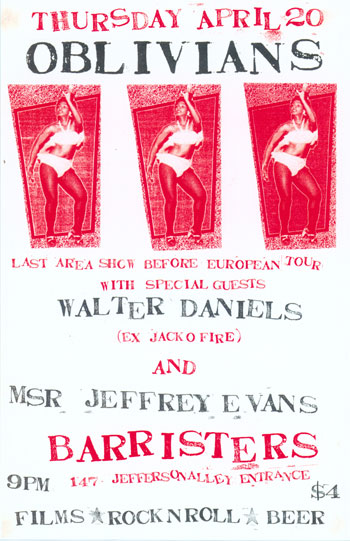
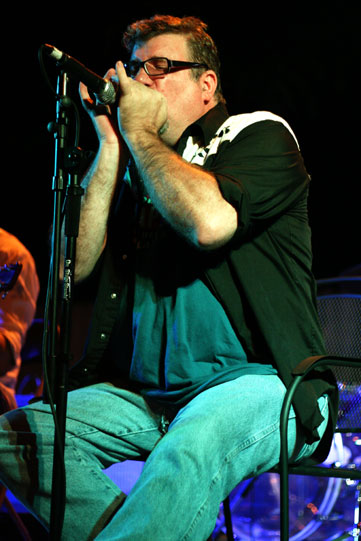
|
END INTERVIEW
Select Walter Daniels Discography (and go here for further info)
 Hickoids "Waltz A Crossdress Texas" LP (Toxic Shock - 1989)
Hickoids "Waltz A Crossdress Texas" LP (Toxic Shock - 1989)
Walter Daniels "Army of the Lord" 7" (Undone - 1994)
Jack O'Fire "Forever" CD (Sympathy for the Record Industry - 1996)
The Revelators featuring Walter Daniels "Old Slew Foot" 7" (Sympathy - 1997)
Big Foot Chester "Tabernaclin'" CD (Sympathy - 1998)
Texacala Jones & Her TJ Hookers LP (Idol - 1998)
68 Comeback "A Bridge Too Fuckin Far" LP (Sympathy - 1998)
Walter Daniels, Oblivians & Jeffrey Evans "Melissa's Garage Revisited" LP (Sympathy - 1999)
Walter Daniels & The Drunken Angels 7" (Solid Sex Lovie Doll - 2000)
South Filthy "Soul of A Man" 7" (Wrecked'em - 2003)
Black Joe Lewis & Cool Breeze 7" (Shake Your Ass - 2005)
Walter Daniels "Blows His Top" LP (Lady Kinky Karrot - 2008)
Walter Daniels & The Giblets 10" (Ghost Highway - 2012)
John Schooley/Walter Daniels "Dead Mall Blues" LP (12XU - 2014)
Walter with the Oblivians live in '97 here.
Live photos by Mor Fleisher-Leach
Interview by Ryan Leach, 2015.
To read other TB interviews, go here.
|
PREVIOUS PAGE � HOME � NEXT PAGE
|

















 Hickoids "Waltz A Crossdress Texas" LP (Toxic Shock - 1989)
Hickoids "Waltz A Crossdress Texas" LP (Toxic Shock - 1989)